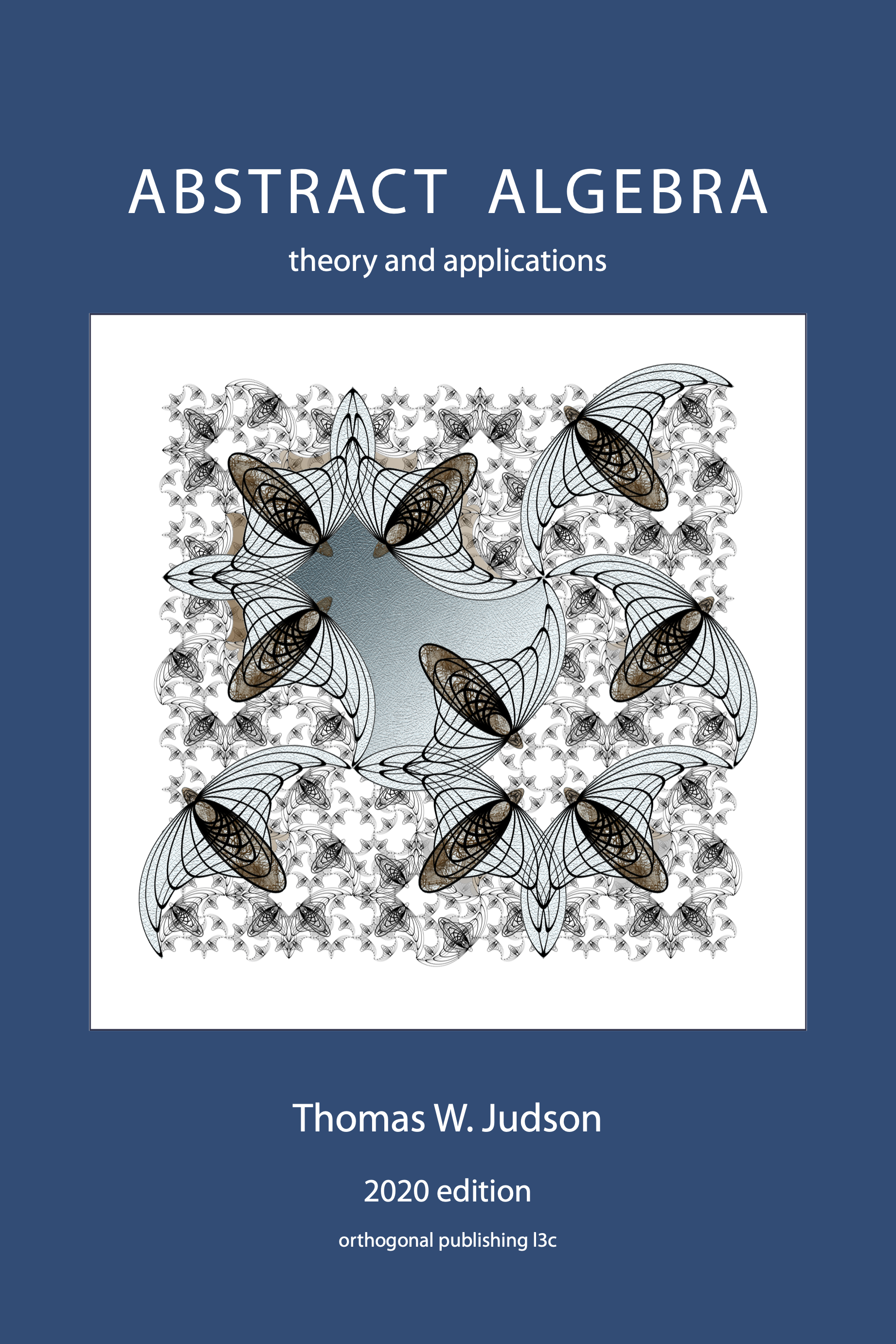Worksheet 8.2.2 Activity: Review of the Euclidean Algorithm
The goal of this activity is to remember how to use the Eulcidean Algorithm to find the greatest common divisor of two elements in a ring (numbers or polynomials, for us) and write the gcd as a linear combination of the two elements (which Bezout's lemma tells us we can do).
Example 8.8.
Let's find the gcd of \(945\) and \(2415\text{.}\) Repeatedly use the division algorithm:
Check: \(105\) divides all the quotients and remainders, and any other divisor of \(945\) and \(2415\) would also divide \(105\text{.}\) Therefore, \(\gcd( 945, 2415 ) = 105\text{.}\)
Now work backwards to obtain numbers \(r\) and \(s\) such that \(945 r + 2415 s = 105\text{.}\)
So \(r = -5\) and \(s= 2\text{.}\)
1.
Find the greatest common divisor of 471 and 564 using the Euclidean Algorithm and then find integers \(r\) and \(s\) such that \(\gcd(471,564) = 471r+564s\text{.}\)
2.
In the quotient ring \(\Z/\langle 564 \rangle\text{,}\) find an element \(a + \langle 564\rangle\) such that \((a+\langle 564\rangle)(471 + \langle 564\rangle) = 3 + \langle 564 \rangle\text{.}\) Explain why the previous question is helpful here.
3.
Is \(471 + \langle 564\rangle\) a unit in \(\Z/\langle 564\rangle\text{?}\) Explain.
4.
In \(\Q[x]\text{,}\) find the gcd of the polynomials \(a(x) = x^3 + 1\) and \(b(x) = x^4 + x^3 + 2x^2 + x - 1\text{.}\) Then express the gcd as a combination of the two polynomials (as in Bezout's lemma).
5.
Find the greatest common divisor of \(x^{24}-1\) and \(x^{15}-1\) in \(\Q[x]\text{,}\) and then express the gcd as a combination of the two polynomials.
6.
Find a coset \(a(x) + \langle x^{24}-1\rangle\) of \(\Q[x]/\langle x^{24}-1\rangle\) such that \((a(x) + \langle x^{24}-1\rangle)(x^{15}-1 + \langle x^{24}-1\rangle) = x^3-1 + \langle x^{24}-1\rangle\text{.}\)
